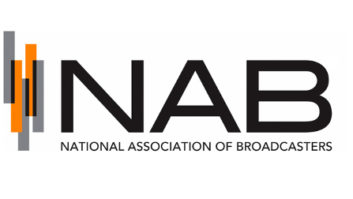NAB files brief on LPFM issues
Sep 1, 2000 12:00 PM, Harry Martin
In July, in its effort to derail the new low-power FM (LPFM) service through litigation, the NAB filed its brief with the U.S. Court of Appeals for the D.C. Circuit. The brief was filed in the NAB’s previously submitted appeal to the court attacking the LPFM rules.
The NAB’s brief argues to the Court of Appeals that the commission’s LPFM rules should be rescinded because the FCC was arbitrary and capricious in adopting those rules. In general, a court of appeals does not overturn the findings of an expert agency without making a finding that the agency was arbitrary or capricious in some way in reaching its decision.
The NAB’s brief points to three specifics in making its argument. First, when the FCC adopted the LPFM rules, it reversed its long-standing policy that low-power services are an inefficient use of spectrum, and it provided no explanation of that reversal. Second, according to NAB, the commission disregarded evidence showing that the implementation of LPFM would cause substantial interference to existing FM service. Third, the commission has insisted that the benefits of LPFM would outweigh any costs, but it has failed to undertake a proper cost/benefit analysis.
The commission’s brief addressing these arguments was due in early August. Intervenors in the case, including the 50 state broadcast associations and radio groups on the one side, and Media Access Project on the other side, also had an opportunity to submit briefs in August. On November 28, 2000, the court will hear oral arguments on the issues raised and ultimately will issue a decision. In the meantime, however, as the appeals process moves forward, there is no stay on the LPFM rules adopted. Indeed, the FCC has proceeded with plans for the filing of LPFM applications, with the first application filing window having been opened from May 30 to June 8 for 12 states and territories. More than 700 LPFM applications were filed during that first window, and the commission will now process them. A second window notice was scheduled for August 28 to September 1, for Connecticut, Illinois, Kansas, Michigan, Minnesota, Mississippi, Nevada, New Hampshire, Puerto Rico, Virginia and Wyoming.
Given the delays inherent in the appeals process, the first LPFM applications could be granted, and the stations constructed, before the Court of Appeals issues a ruling. While the proceeding is on an expedited schedule, there will still be a time lapse between oral arguments in November and a decision. If LPFM stations are in place prior to the time the court reaches a decision, this fact might increase the court’s reluctance to overturn the LPFM rules.
Recent FCC fines Fence enforcement. FCC agents visited stations in Virginia, Indiana and Montana to inspect fences surrounding antenna towers. The federal agents found unlocked gates, missing fence slats and broken hinges, and levied the standard FCC fine for fence violations of $7,000. In one case, an FCC agent found two gates unlocked during an evening inspection and a gate unlocked two weeks later during a morning inspection. The station advised the FCC that a painter it had hired left the gate unlocked. However, the FCC held the station responsible for those actions and issued the $7,000 fine. In another instance, an FCC agent inspected a station and found that several slats were missing in the fence surrounding the antenna. The agent determined that the missing fence slats created an opening through which a person could fit. Although the station advised the FCC that it was not aware of the fence damage, it was held responsible. FCC rules mandate that antenna towers having radio frequency potential at the base must be enclosed within effective locked fences or other enclosures.
Buyer and seller fined. To avoid a bank foreclosure on his station, an FM station owner transferred promissory notes, equipment liens and assets to a longtime station employee. The action staved off foreclosure but created an unauthorized transfer of control. Both parties pleaded with the FCC, stating that they had not obtained the advice of counsel in attempting this unconventional action and that they never intended the transfer to be a violation of the FCC rules. Nevertheless, the FCC fined the station owner $8,000. The longtime employee, also the new owner, was fined $8,000 as well.
FCC forms must be filed. The FCC fined the buyer of a station $3,000 for failing to submit forms to report his ownership. In this transaction, as opposed to the one above, the FCC approved the sale of a station in 1996 and the parties properly transferred the station. However, the new buyer neither advised the FCC that the sale had been completed (via a consummation letter), nor did he submit an ownership report to disclose the station’s new ownership.











